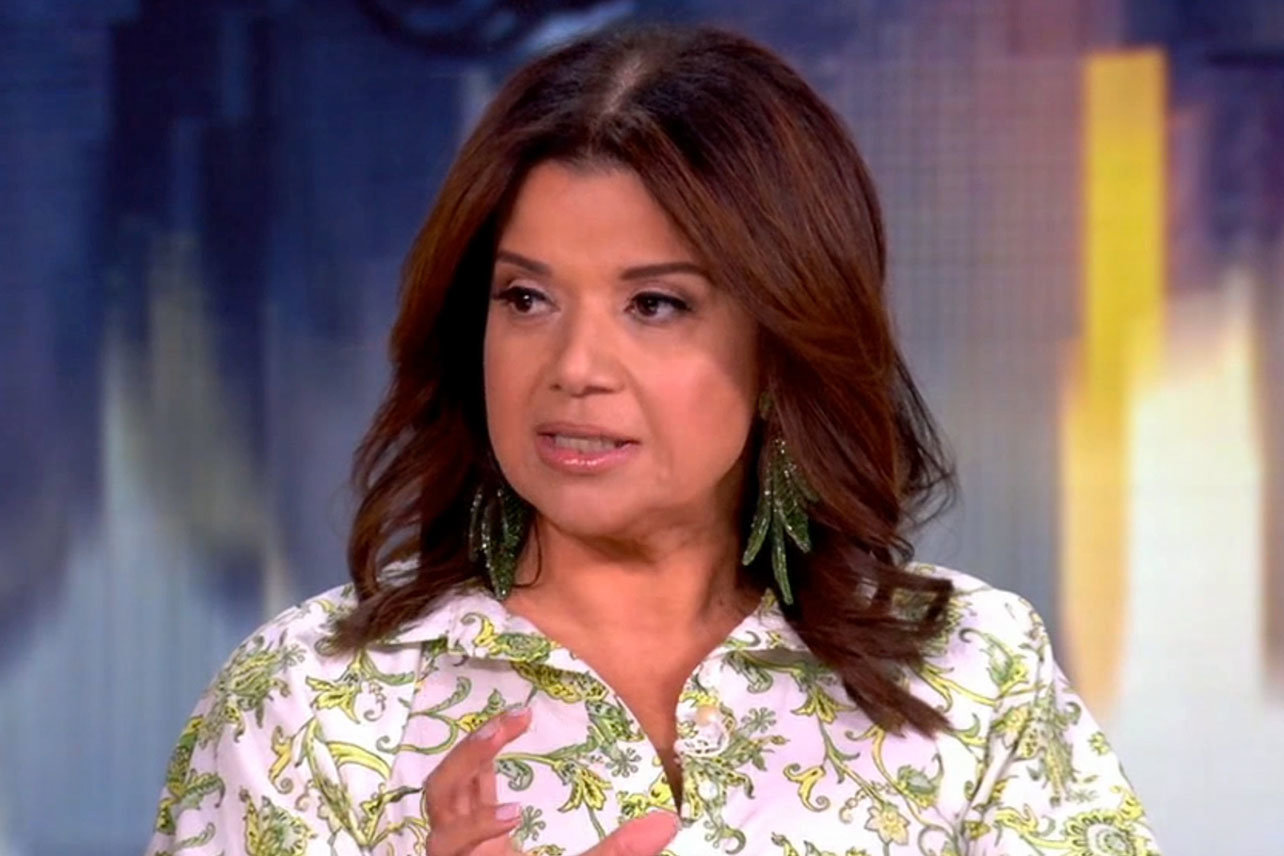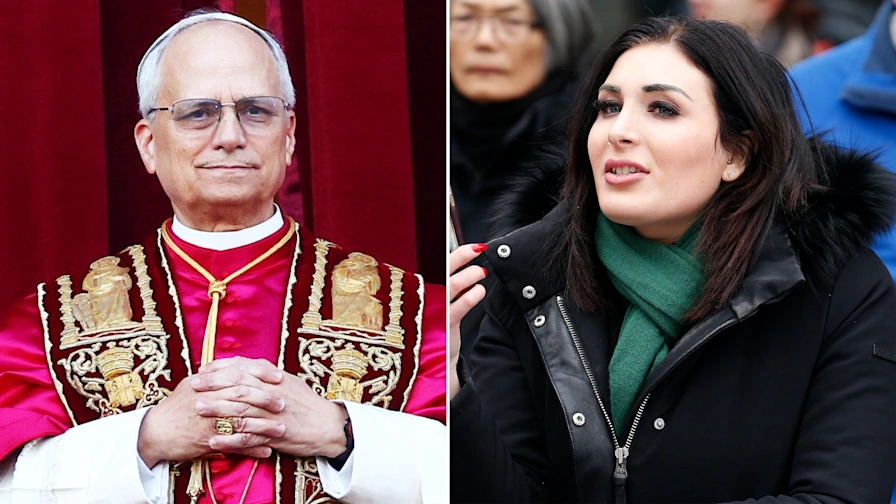Outraged Ana Navarro Sounds Off On Trump’s “Disgusting” AI Photo Of Himself As The Pope: “This Is Him Trolling Us”

In a stunning display of modern absurdity, former President Donald Trump shared an AI-generated image of himself dressed as the Pope, which has ignited a firestorm of criticism and outrage from various quarters. The image, presented on Trump’s official social media platform, has raised eyebrows and sparked conversations around the impact of political satire and respect for religious sentiments. Among those vocal about their displeasure is Ana Navarro, co-host of “The View,” who wasted no time in condemning the post as “disgusting” and offensive.

This incident comes at a particularly sensitive time for the Catholic community, which is mourning the passing of Pope Francis and navigating the complexities involved in the selection of a new Pope. Navarro’s comments underscore the seriousness of the matter and highlight a fundamental breach of respect in political commentary. It raises important questions about the boundaries of humor in politics, especially when it intersects with profound religious traditions and sentiments.
Ana Navarro’s Response to Trump’s Provocative Image

Navarro’s reaction was both heartfelt and pointed as she articulated her feelings about the AI photo. She characterized the image as “disrespectful” and ill-timed, suggesting that such antics from Trump trivialize the gravity of the Catholic faith, especially during a period marked by sorrow and reflection within the community. Navarro emphasized that devout Catholics, many of whom may continue to support Trump, should take a moment to reflect on the implications of his actions.

She noted that while satire and parody are common in political discourse, Trump’s approach crossed a line by making a mockery of the role of the Pope. Navarro suggested that the former president is using this opportunity to “troll” his critics, playing into a narrative that disregards respect for faith and tradition for the sake of attention and controversy. In doing so, many feel that Trump is undermining the very ethical considerations one would expect from a leader.
The Impact of AI-Generated Content on Political Discourse

The rise of AI-generated images and the use of this technology in political contexts are becoming increasingly prevalent. While they can serve as tools for humor and satire, they also raise ethical questions about authenticity and representation. The blurred lines between reality and artificial creations can lead to misunderstandings and harm, particularly when they reference sacred figures or institutions.

Trump’s decision to share an AI-generated photo of himself as the Pope poses important conversations about the intersection of technology and morality in the digital age. As AI becomes more integrated into our communication, it is essential to establish clear boundaries for its use, especially in contexts that involve sensitive subjects such as religion.
The outrage from Ana Navarro and others may reflect a growing concern over this trend. Political leaders and public figures wield significant power in shaping narratives, and their choices can have far-reaching implications for their followers. With that power comes the responsibility to act with integrity and respect, especially when dealing with matters of faith and tradition.
Community Reactions and Broader Implications
The backlash from Navarro’s comments has resonated with many, both within the Catholic community and beyond. The intersection of political satire and religious reverence can be a delicate one, and this incident has sparked widespread discussion about the appropriateness of utilizing such imagery for personal or political gain. Social media platforms have become arenas for debates over the nature of respect in public discourse, where responses range from agreement with Navarro to staunch defense of Trump’s provocative humor.
Food for thought arises in considering the broader implications of such incidents on political engagement and public perception. While humor can spur conversations and bring awareness, it must also be mindful of the potential to alienate sections of society that view certain subjects with reverence. The merging of AI technology and political commentary can result in a landscape fraught with misunderstandings if not approached with caution.
The political landscape is already polarized; adding AI-generated content to the mix can exacerbate divisions when such images provoke instead of unite. Leaders of all stripes must ponder the messages they choose to convey, ensuring that respect for all communities remains paramount, regardless of political motivations.
Conclusion

The controversy surrounding Trump’s AI-generated photo illustrates the complex relationship between politics, technology, and faith. Ana Navarro’s condemnation offers a critical perspective on maintaining respect for sacred traditions amidst a chaotic political climate. As debates continue, it is essential for both politicians and their supporters to engage thoughtfully with such content. For those interested in advocating for respectful political dialogue, consider sharing your voice and values through conversation, ensuring that all perspectives are represented in a thoughtful manner.





